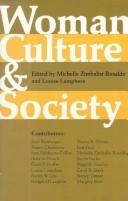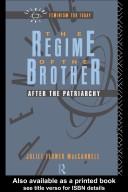| Listing 1 - 6 of 6 |
Sort by
|
Book
ISBN: 0486112004 Year: 2012 Publisher: Newburyport : Dover Publications,
Abstract | Keywords | Export | Availability | Bookmark
 Loading...
Loading...Choose an application
- Reference Manager
- EndNote
- RefWorks (Direct export to RefWorks)
A woman of many gifts, Margaret Fuller (1810-1850) is most aptly remembered as America's first true feminist. In her brief yet fruitful life, she was variously author, editor, literary and social critic, journalist, poet, and revolutionary. She was also one of the few female members of the prestigious Transcendentalist movement, whose ranks included Ralph Waldo Emerson, Henry David Thoreau, Elizabeth Palmer Peabody, Nathaniel Hawthorne, and many other prominent New England intellectuals of the day. As co-editor of the transcendentalist journal, The Dial, Fuller was able to give voice to her g
Digital
Abstract | Keywords | Export | Availability | Bookmark
 Loading...
Loading...Choose an application
- Reference Manager
- EndNote
- RefWorks (Direct export to RefWorks)
Book
ISBN: 2707109037 9782707109033 Year: 1979 Volume: 177 Publisher: Paris: Maspero,
Abstract | Keywords | Export | Availability | Bookmark
 Loading...
Loading...Choose an application
- Reference Manager
- EndNote
- RefWorks (Direct export to RefWorks)
Women --- Femmes --- History --- Histoire --- Political philosophy. Social philosophy --- Social stratification --- Sociology of work --- Women - History - Modern period, 1600 --- -Women --- -Political philosophy. Social philosophy --- Power --- Marxism --- Middle class --- Working-class women --- Book

ISBN: 0804708517 0804708509 9780804708517 Year: 1974 Publisher: Stanford, Calif.: Stanford university press,
Abstract | Keywords | Export | Availability | Bookmark
 Loading...
Loading...Choose an application
- Reference Manager
- EndNote
- RefWorks (Direct export to RefWorks)
Sociology of the family. Sociology of sexuality --- Ethnology. Cultural anthropology --- Women's Rights --- Women --- Femmes --- essays --- History --- Histoire --- Social conditions --- #SBIB:39A11 --- #SBIB:316.346H20 --- Antropologie : socio-politieke structuren en relaties --- Positie van de vrouw in de samenleving: algemeen --- Addresses, essays, lectures. --- Africa --- essays. --- 78.29.2 --- Women - History - Modern period, 1600 --- -Women - Social conditions --- Book --- Edited volume --- Culture --- Anthropology

ISBN: 1134937822 1134937830 1280193603 0203320956 0203021843 9780203021842 9781134937837 9781134937820 9781280193606 9780203320952 0415054354 0415054346 9780415054348 9780415054355 9781134937783 9781138475557 Year: 1991 Publisher: London New York Routledge
Abstract | Keywords | Export | Availability | Bookmark
 Loading...
Loading...Choose an application
- Reference Manager
- EndNote
- RefWorks (Direct export to RefWorks)
The Regime of the Brother is one of the first attempts to challenge modernity on its own terms. Using the work of Lacan, Kristeva and Freud, Juliet MacCannell confronts the failure of modernity to bring about the social equality promised by the Enlightenment. On the verge of its destruction, the Patriarchy has reshaped itself into a new, and often more oppressive regime: that of the Brother. Examining a range of literary and social texts - from Rousseau's Confessions to Richardson's Clarissa and from Stendhal's De L'Amour to James's What Maisie Knew<
Women --- Social history. --- Women in literature. --- Feminist theory. --- Feminism --- Feminist philosophy --- Feminist sociology --- Theory of feminism --- Woman (Christian theology) in literature --- Women in drama --- Women in poetry --- Descriptive sociology --- Social conditions --- Social history --- History --- Sociology --- Philosophy --- Modern period, 1600 --- -Social history --- Women in literature --- Feminist theory --- Women - History - Modern period, 1600 --- -Social history - Modern, 1500 --- -Women in literature.
Book
ISBN: 9782721005625 2721005626 Year: 2007 Publisher: Paris: Des Femmes,
Abstract | Keywords | Export | Availability | Bookmark
 Loading...
Loading...Choose an application
- Reference Manager
- EndNote
- RefWorks (Direct export to RefWorks)
Women --- Sex role. --- Women in literature --- Sex in literature. --- Femmes --- Rôle selon le sexe --- Femmes dans la littérature --- Sexualité dans la littérature --- History --- Histoire --- Women - History - Modern period, 1600 --- -Sex role --- Sex in literature --- Power (Social sciences) --- Sex Behavior --- Gender Identity --- Social Dominance --- Women - history --- Literature, Modern --- Women - History and condition of women --- Sex role
| Listing 1 - 6 of 6 |
Sort by
|

 Search
Search Feedback
Feedback About UniCat
About UniCat  Help
Help News
News